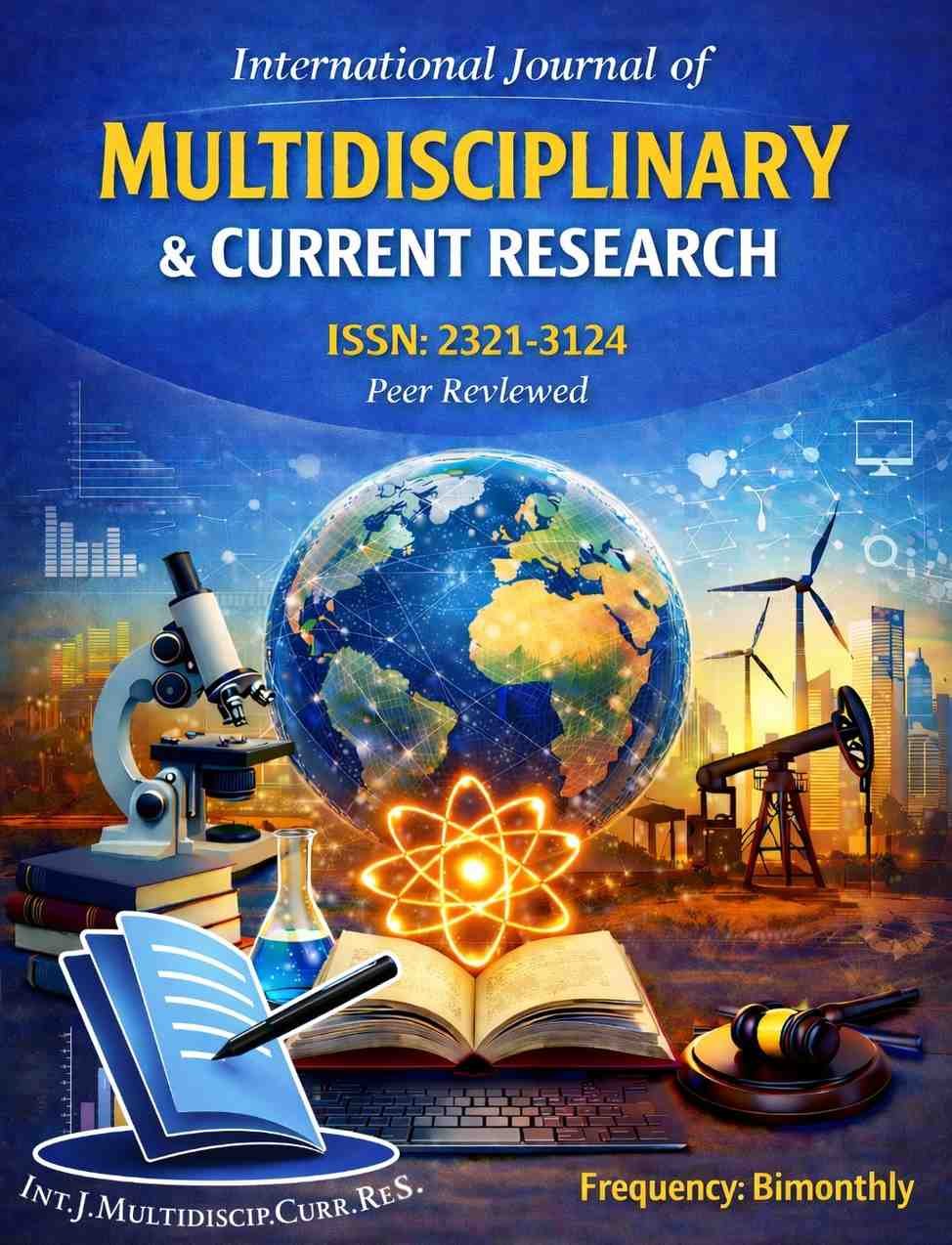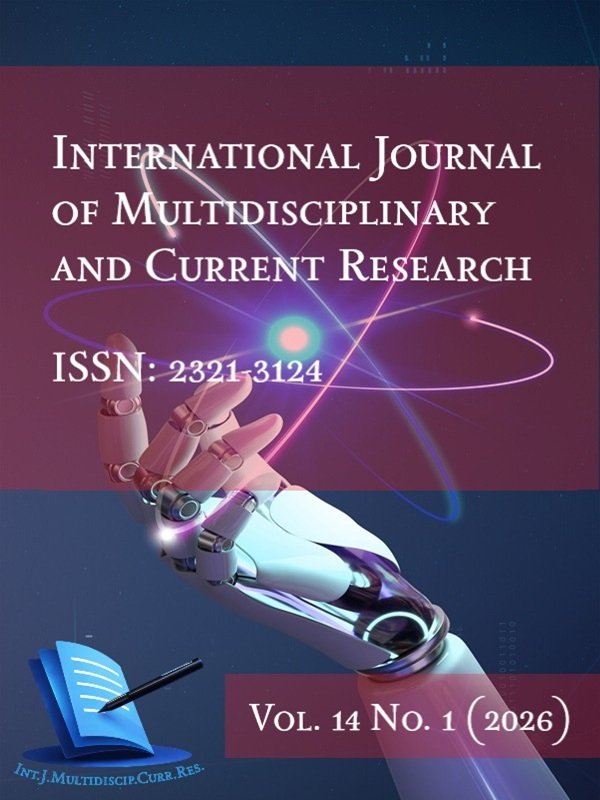
About the Journal
◼ Open Access: Immediate, free access to all published content.
◼ Repository Policy: Authors may deposit articles in repositories and personal websites.
◼ Licensing: Articles are published under CC BY-NC-SA 4.0. Authors retain copyright.
◼ Plagiarism Policy: Zero tolerance; all submissions are screened using iThenticate or equivalent tools.
◼ AI Policy: Use of AI tools must be transparently disclosed.
◼ Digital Archiving: Long-term preservation via services such as Portico or CLOCKSS.
◼ Advertising Policy: Only ethical, academic-relevant advertisements are accepted.
◼ Ahead of Print: Accepted articles are published online with DOI before issue assignment
Current Issue

The International Journal of Multidisciplinary and Current Research, Volume 14, Issue 1 (2026), presents a comprehensive and diverse collection of scholarly articles that reflect the most recent advancements across science, engineering, management, social sciences, and applied research. This current issue strategically highlights innovative methodologies, interdisciplinary perspectives, and contemporary problem-solving approaches designed to address complex real-world challenges. Each contribution emphasizes analytical rigor, academic originality, and practical relevance, offering indispensable insights for global researchers, academicians, and industry professionals. By actively fostering cross-disciplinary dialogue, this issue further strengthens the journal’s enduring commitment to disseminating high-quality research. Such efforts are essential for supporting global knowledge development, driving technological progress. Read More
Articles
Most Cited Articles
◼ Morphometric analysis of a drainage basin using geographical information system: a case study ⮺
◼ An overview: Metacognition in education ⮺
◼ Efficiency of accounting information system and performance measures ⮺
◼ Determinants of the climate change adaptation in rural farming in Nepal Himalaya ⮺
◼ An overview of service models of cloud computing ⮺
◼ Impact of CSR on Customer Loyalty: Putting Customer Trust, Customer Identification, Customer Satisfaction and Customer Commitment into Equation-A study on the Banking Sector of Pakistan ⮺
◼ Process parameters for green synthesis of silver nanoparticles using leaves extract of Aloe vera plant ⮺
◼ Optimization of Process Parameters by Taguchi Method: Catalytic degradation of polypropylene to liquid fuel ⮺
◼ Analysis of stress management among professionals in the Nigerian construction industry ⮺
◼ Evolution of mobile communication network: From 1G to 4G ⮺

